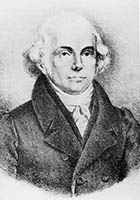Homeopathy

Homeopathy is a system of therapeutics founded in 1796 by Samuel Hahnemann (1753-1843) on the principle that “like cures like.”1 In other words, if a patient suffers certain symptoms, substances that normally cause those same symptoms are given to the patient. Although not really the same thing, homeopathy could be considered similar to vaccination or the "hair of the dog" treatment for hangovers.
Hahnemann also made the counterintuitive claim that the effectiveness, or potency, of a therapeutic substance increases the more it is diluted. Homeopathic remedies are usually diluted to the point where there is little, if any, of the original substance remaining. Homeopaths claim that there is some form of memory effect at work which retains the therapeutic value. This is enabled by using a technique called succussion which involves shaking the solution, and is said to "awaken the spirit of the remedy". Exactly how this mechanism might function is unclear, nor is it clear how the solution would retain memory from the homeopathic substance and not other (conflicting) substances.
In the 19th century homeopathy found favor as a more gentle alternative to common practices such as bleeding2. In modern times it is still a popular alternative to mainstream medicine, especially when conventional treatments have failed.
Skeptics offer various arguments against the effectiveness of homeopathic treatment, the two most common arguments being:
- The dilution is so great that none of the original substance remains, and there is no scientific evidence of any memory effect.
- Homeopathic treatments have no more effect than placebo treatments.
The Medical Letter on Drugs and Therapeutics is a well-respected publication that provides drug information for doctors. In the edition dated February 26 1999, the publication concluded:
"These products have not been proven effective for any condition. There is no good reason to use them."2
There are, however, numerous studies that do appear to support the efficacy of homeopathic treatments. Scientists have spent a great deal of effort analyzing these studies but are often hampered by the abundance of flawed research material. For example, a meta-analysis by the University of Exeter Department of Complementary Medicine set out to analyze one hundred studies, but after eliminating the flawed studies, was left with five.3 For the record, the final analysis concluded:
"...published evidence did not support homeopathic remedies as more effective than placebo..."3
Various prizes have been offered to anyone who can prove that homeopathy works. For example, the James Randi Educational Foundation offered $USD1,000,0004 and Professor Edzard Ernst offered £10,0005. The official homeopathic response to such challenges is to declare them unnecessary. For example, Steve Scrutton of the Alliance of Registered Homeopaths said of Dr Ernst's challenge:
"We have nothing to prove, and certainly not to people with closed minds."5
Skeptics counter that this is not the case when people's health is at stake, and that homeopathic remedies should meet the same standards required of traditional medicine (i.e. evidence of both safety and efficacy). In other words, a pharmaceutical company would not be allowed to promote a new drug without any evidence that it is safe and effective, and neither should homeopathic companies.
Despite the conclusions of most studies, homeopathy continues to enjoy public support, and even some level of support in the medical profession (albeit fairly limited).
homeopathy>
2. NCAHF Newsletter, 1999-01-01, <http://www.enotes.com/ncahf-newsletter-journals/54912658>
3. NCAHF Newsletter, 1999-01-01, <http://www.enotes.com/ncahf-newsletter-journals/54912671>
4. http://www.randi.org
5. http://www.newscientist.com/channel/health/mg19826613.200-competition-puts-homeopathy-on-trial.html
